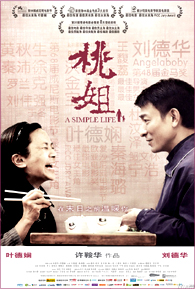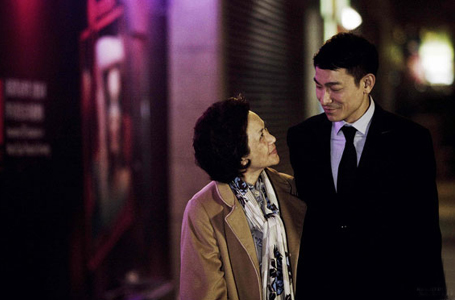
Part of the film is this Hallmark-style, based-on-real-characters-and-real-events, sentimental story. Well told and touching, it should tug at some heartstrings without resorting to cheap theatrics and emotional manipulation, especially since director Ann Hui is one of the best serious filmmakers in Hong Kong.
Plot-wise, this part of the film is strictly paint-by-numbers but Hui never allows the film to go on autopilot completely, inserting moments of genial comedy and surprising interactions between the two principal characters that reveal more about the depth of their relationship and bonds to each other than a surfeit of intrusive flashbacks might achieve. We are never told precisely or exhaustively what Ah Tao did in her more than 60 years with the Leung family but thanks to the script and direction, the focus is on the debt that Roger feels he must repay to Ah Tao, and how it is more a debt of relationship than purely just money.
The other part of the film is its slice of life account of Ah Tao's final days in the retirement home and her interaction with its other tenants. It's an intimate portrait of aging that acknowledges the simultaneous dignity and indignity of growing old, populated with several ongoing comedies and tragic stories. Fuelled by a keen sense of observational humour and understanding of ageing issues, it's well-handled without being heavy-handed, unlike some of Jack Neo's films about the elderly and their experience of aging in Singapore.
All in all, A Simple Life is a very human film with amazing cast chemistry that simply moves. It's a feel-good film by one of the best directors in Hong Kong and China. That said, it is quite irrelevant to modern Hong Kong, where recently legislators had to fight to get Filipino maids the right of residence in the territory despite spending decades of their lives in servitude.












 列印版本
列印版本












讀者回應
請先登入再使用此功能。